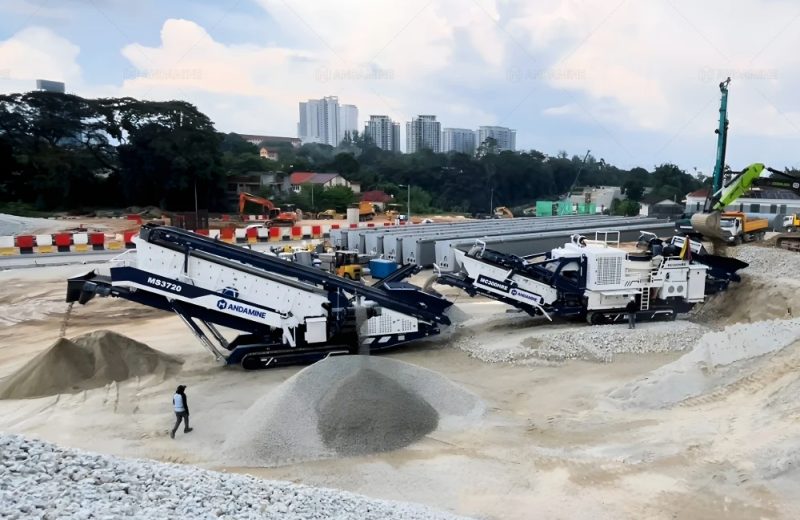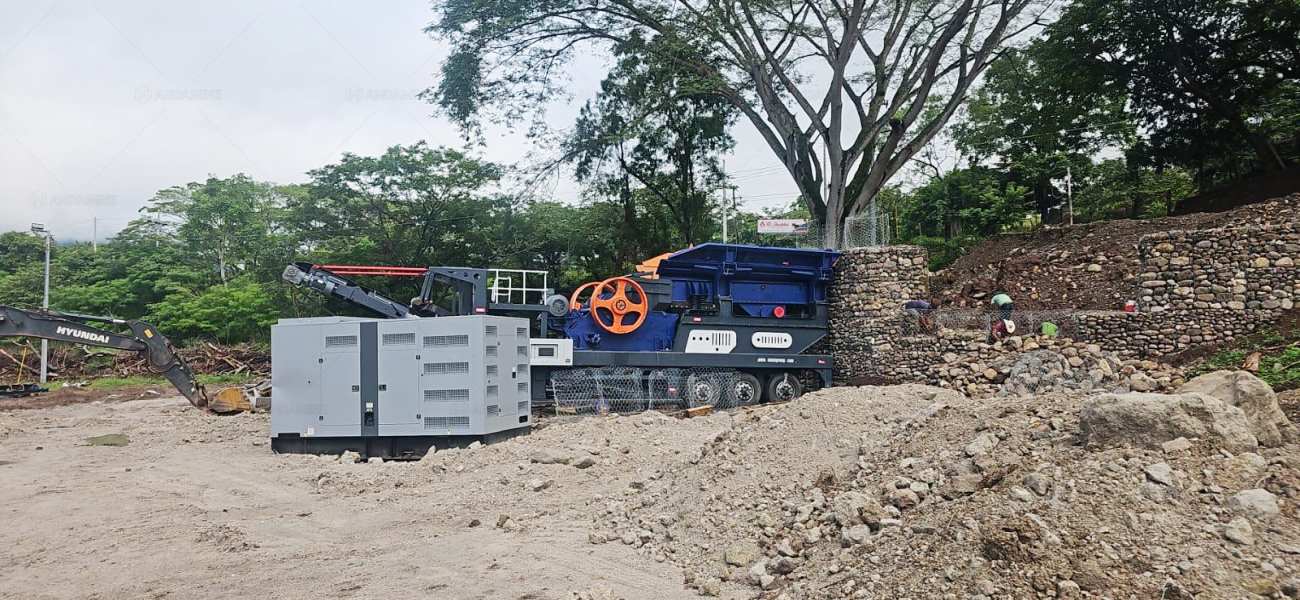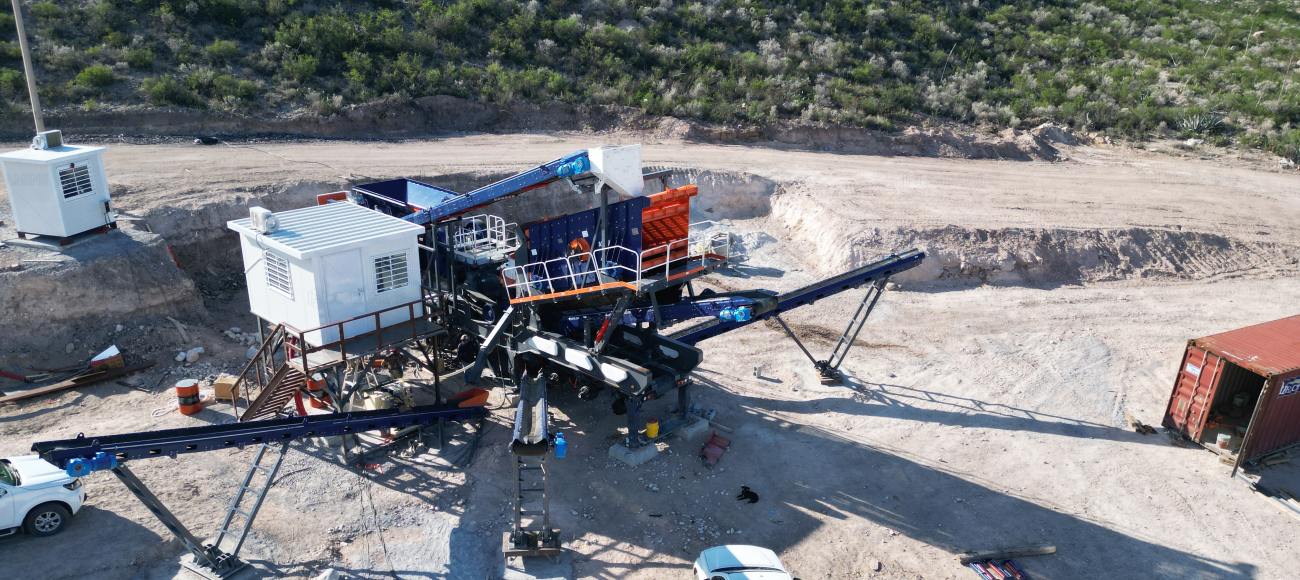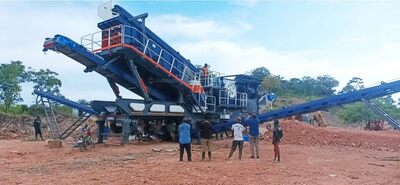Why a Mobile Crusher Plant Is Essential for Rapid Infrastructur
-
In today’s fast-paced development environment, infrastructure projects are expected to be completed faster, more efficiently, and with higher precision than ever before. Whether it’s building highways, railways, bridges, or large-scale urban developments, the pressure on contractors and developers to meet tight deadlines while maintaining quality has never been greater. Against this backdrop, the mobile crusher plant has emerged as an indispensable piece of equipment, revolutionizing on-site material processing and shaping the way modern infrastructure is built.
A mobile crusher plant combines the functions of crushing, screening, and conveying into a single mobile platform. Unlike traditional stationary crushers that require complex civil work, long installation times, and heavy transportation logistics, mobile crushing plants bring unparalleled flexibility and speed to construction sites. This makes them essential for rapid, large-scale infrastructure growth in both developed and developing regions.

On-Site Material Processing for Faster Project Cycles
One of the biggest advantages of a mobile crusher plant is its ability to process materials directly on the construction site. Infrastructure projects such as highways, airport runways, and railways generate massive amounts of raw material—rocks, concrete, asphalt, and demolition waste. Traditionally, these materials would be transported offsite for crushing, adding significant time and cost to the project.
With a mobile crusher plant, contractors can:
-
Crush raw materials exactly where they are extracted or demolished
-
Reduce the need for multiple transportation cycles
-
Minimize delays caused by material movement
-
Reuse processed aggregates immediately for backfilling, road base, or concrete production
This localized approach dramatically speeds up project timelines. Instead of relying on external crushing facilities, material production becomes an integrated part of the project workflow, enabling faster decision-making and continuous progress.
Enhanced Flexibility and Mobility Across Job Sites
Large infrastructure projects often stretch across vast distances or involve multiple phases spread over different locations. A mobile crusher plant is built to move. Equipped with tracked or wheeled mobility, it can be quickly relocated between sites without dismantling.
This flexibility is essential for:
-
Road construction extending through mountainous or rural regions
-
Pipeline projects requiring periodic relocation
-
River engineering and coastal projects needing dynamic placement
-
Urban redevelopment where space constraints require frequent repositioning
The ability to reposition machinery rapidly ensures maximum productivity and seamless transitions between sections of the project, reducing downtime and improving overall workflow continuity.
Lower Transportation Costs and Environmental Impact
Transporting raw material to stationary crushing facilities involves fleets of dump trucks, repeated fuel consumption, and significant carbon emissions. It also increases wear on public roads, contributing to long-term maintenance costs.
Mobile crusher plants address these issues by eliminating or reducing long-distance hauling. When materials are processed onsite:
-
Fuel usage drops drastically
-
CO₂ emissions decrease
-
Heavy vehicle traffic around the project site is reduced
-
Less wear and tear occurs on community roads
For governments and contractors focusing on green construction and sustainability, mobile crushers align perfectly with eco-friendly project goals. Many modern units also come with energy-efficient motors, advanced dust suppression systems, and noise reduction technology.

Efficient Waste Recycling in Urban Infrastructure
Urban construction and redevelopment projects often involve demolishing old buildings or roads before new structures can be erected. A mobile crusher plant plays a vital role in recycling construction waste such as:
-
Concrete
-
Bricks
-
Asphalt
-
Steel-reinforced debris
Instead of sending waste to landfills, the crusher transforms it into usable aggregate. This supports:
-
Circular construction practices
-
Reduced demand for new raw materials
-
Significant savings in material purchasing costs
-
Lower landfill fees and environmental footprint
In rapidly developing cities, waste recycling is no longer optional—it is a strategic necessity. Mobile crusher plants enable continuous recycling operations directly at the job site.
Improved Productivity Through Automation and Smart Control
Modern mobile crusher plants are equipped with advanced control systems, telematics, and automation technologies. These digital enhancements provide:
-
Real-time performance monitoring
-
Automated adjustment of crusher settings
-
Optimized feeding and screening
-
Predictive maintenance alerts
This reduces operator errors, minimizes downtime, and improves production consistency. With the integration of smart technology, mobile crushers deliver high productivity even under demanding conditions, ensuring that infrastructure schedules remain on track.
Cost Efficiency and High Return on Investment
Although the initial investment in a mobile crusher plant may seem high, the long-term savings it offers make it a highly cost-effective solution for infrastructure developers. Key cost benefits include:
-
Reduced transportation and fuel expenses
-
Lower labor requirements
-
Minimal site preparation
-
Decreased dependence on external aggregate suppliers
-
Ability to reuse recycled materials
For contractors handling multiple projects annually, the rapid deployment and operational cost savings often result in a strong return on investment within a short period.
Supporting Infrastructure Growth in Remote and Challenging Areas
Many countries are expanding their infrastructure into remote or hard-to-reach regions, where accessing stationary crushing facilities is difficult. A mobile crusher plant is ideal for such conditions.
It enables:
-
Independent operation without permanent foundations
-
Quick adaptation to difficult terrains
-
Consistent performance regardless of changing project environments
Whether it’s mountainous roads, mining corridors, or rural community development, mobile crushers ensure that material processing is never limited by geography.

Conclusion
A mobile crusher plant is far more than a piece of machinery—it is a strategic tool that accelerates construction timelines, drives cost efficiency, and enhances sustainability in infrastructure development. Its ability to move, adapt, and process materials onsite makes it indispensable for modern contractors facing tight schedules and diverse project conditions.
As nations continue investing in highways, smart cities, renewable energy projects, and rural development, mobile crushing plants will remain at the forefront of rapid infrastructure transformation. They empower developers to build faster, smarter, and greener—key ingredients for sustainable growth in the years ahead.
-





